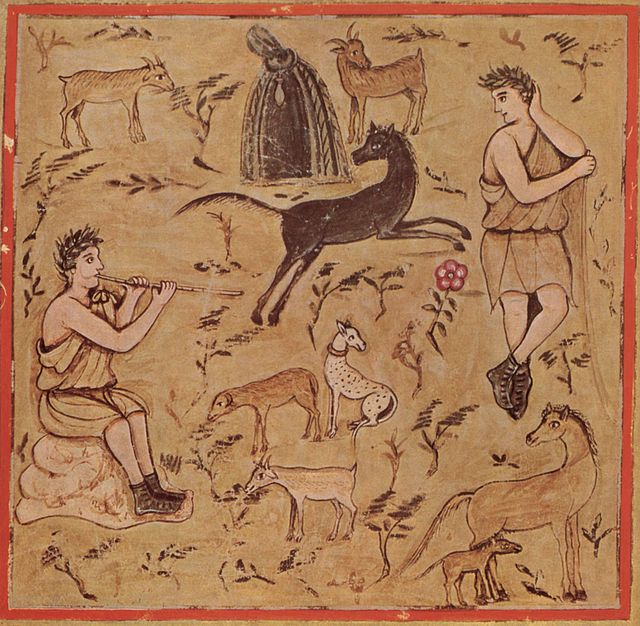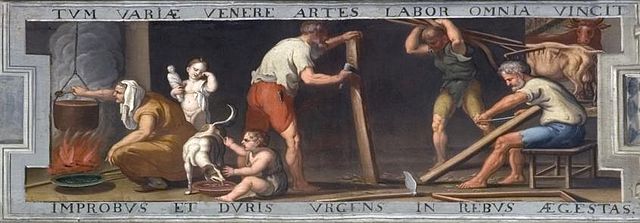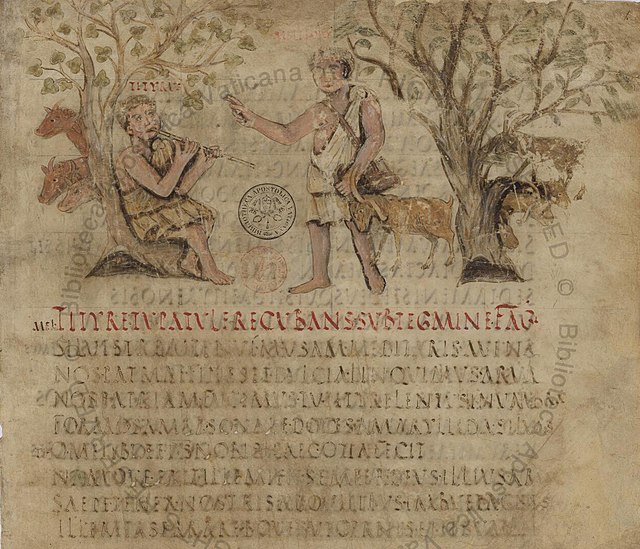The Georgics is a poem by Latin poet Virgil, likely published in 29 BCE. As the name suggests the subject of the poem is agriculture; but far from being an example of peaceful rural poetry, it is a work characterized by tensions in both theme and purpose.
Georgics Book III, shepherd with flocks, Roman Virgil.
One of four Polish frieze paintings in the King's palace at Wilanów illustrating Georgics Book I, 1683
Fourth book of Virgil’s Georgics in ms. Biblioteca Apostolica Vaticana, Vaticanus Palatinus lat. 1632, fol. 51v.
Cristoforo Majorana – Leaf from Eclogues, Georgics and Aeneid – Walters W40016V – Open Reverse
Publius Vergilius Maro, usually called Virgil or Vergil in English, was an ancient Roman poet of the Augustan period. He composed three of the most famous poems in Latin literature: the Eclogues, the Georgics, and the epic Aeneid. A number of minor poems, collected in the Appendix Vergiliana, were attributed to him in ancient times, but modern scholars consider his authorship of these poems to be dubious.
Modern bust of Virgil at the entrance to his crypt in Naples
Page from the beginning of the Eclogues in the 5th-century Vergilius Romanus
Horace, Virgil and Varius at the house of Maecenas, by Charles Jalabert.
Late 17th-century illustration of a passage from the Georgics, by Jerzy Siemiginowski-Eleuter.







